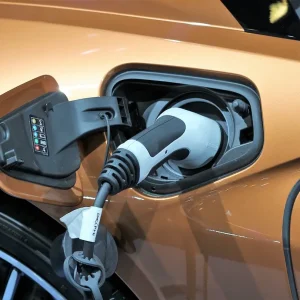The UK new car market fell by 9% year-on-year in July, chiefly because of a continued drop in fleet sales with manufacturers prioritising private buyers.
According to figures from the Society of Motor Manufacturers and Traders (SMMT), registrations to fleets were down by 18.2% last month, while private registrations remained level.
The SMMT said the continuing overall supply problems were down to ongoing global supply chain issues, predominantly the lack of semiconductors, exacerbated by Covid lockdowns in key manufacturing and logistics centres in China and disruption from the war in Ukraine.
In terms of fuel mix, battery EV registrations were up by 9.9% year-on-year in July to take a 10.9% share of the overall market, although the SMMT noted this was the smallest increase in EV sales seen since the Covid-19 pandemic.
Plug-in hybrid registrations plummeted by 34%, for a 5.8% market share, and conventional hybrids were down by 6.7% for a 12.2% share.
Mild hybrid petrol sales were down by 9.9% for a 13.4% market share, but mild hybrid diesels fared better, up by 4.3% to take 6.3% of the market.
As for pure diesel cars, these saw another steep fall in registrations, by 29.3%, to take just 5.5% of the market, while pure petrol registrations were down by 7.2% for a 45.7% market share.
Based on the disruption to the market seen so far this year, the SMMT has also announced a downgrade to its full-year market forecast. It now expects 1.6 million new car registrations this year, which would be a 2.8% drop compared with 2021, since although the SMMT expects supply issues to start to recede, it says this will not be enough to fully make up for the poor start to the year.
SMMT chief executive Mike Hawes said: “The automotive sector has had another tough month and is drawing on its fundamental resilience during a third consecutive challenging year as the squeeze on supply bedevils deliveries.
‘While order books are strong, we need a healthy market to ensure the sector delivers the carbon savings government ambitions demand.
“The next Prime Minister must create the conditions for economic growth, restore consumer confidence and support the transition to zero emission mobility.”
Reacting to the July figures, Lex Autolease electrification propositions lead Meryem Brassington said that although the continued growth in EV sales was encouraging, fleets could face problems from the ongoing market disruption.
She said: “While [EV sales] growth is welcome, ongoing material shortages and vehicle supply issues continue to affect the EV market and could put the brakes on the good progress already made, leading to significant implications for fleet renewal.
“Policymakers have played an important role in helping to drive the uptake of electric vehicles this year and all eyes will be on the government in the autumn for clarity on company car tax rates beyond 2025 – with the hope that any changes remain gradual and proportional.”





